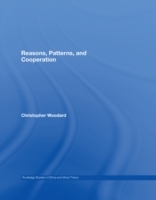This book is about fundamental questions in normative ethics. It begins with the idea that we often respond to ethical theories according to how principled or pragmatic they are. It clarifies this contrast and then uses it to shed light on old debates in ethics, such as debates about the rival merits of consequentialist and deontological views. Using the idea that principled views seem most appealing in dilemmas of acquiescence, it goes on to develop a novel theory of pattern-based reasons. These are reasons to play one's part in some larger pattern of action because of the goodness or rightness of that pattern. Existing accounts of pattern-based reasons usually assume that such reasons can exist only in cooperative contexts. This book rejects that assumption, and claims instead that we can have pattern-based reasons even when the other agents involved in the pattern are wholly unwilling to cooperate. The result is a pluralist teleological structure for ethics, with similarities to some forms of Rule Consequentialism. Woodard claims that this structure achieves an attractive balance between the two virtues of being pragmatic and being principled.

